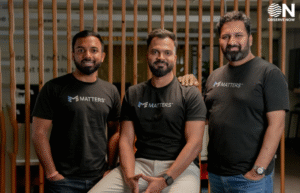IBM Consulting’s Pushpinder Singh Highlights Agentic AI as Game-Changer for Supply Chains

IBM Consulting’s Global Supply Chain Transformation Leader Pushpinder Singh has provided fresh insight into the transformative power of agentic AI, a next-generation form of artificial intelligence that autonomously understands, plans, and executes complex tasks—suggesting it could soon redefine supply chain operations worldwide.
Singh explains that while traditional AI systems act as analysts by evaluating data, and generative AI operates like assistants by creating content based on prompts, “agentic AI acts like an autonomous planner—able to perceive, reason, act, and learn” in real time. He describes it as “high-intensive, human brainpower–type activity” capable of taking over and improving what were previously manual tasks.
In practical terms, Singh sees agentic agents initially deployed in areas such as procurement, third-party risk assessment, and dynamic planning. For example, agents might generate and analyse supplier contracts, identify and monitor vendor risk through continuous data evaluation, or respond dynamically to fluctuating demand signals, rerouting shipments or reallocating inventory without human intervention.
Singh’s five-part framework defines a fully agentic system—comprising an LLM core for reasoning, planning capability, integration with enterprise tools, memory retention, and feedback loops to learn from results. This structured design ensures agents not only make decisions but execute actions within an organisation’s systems.
A common concern with AI, the “hallucination” of erroneous outputs, appears less prevalent in such task-focused agents, says Singh. These systems operate within defined boundaries, reducing the risk of incorrect or irrelevant actions . Additionally, due to shorter training cycles and improved self-directed learning, companies are observing 3–6 month deployment timelines with rapidly increasing accuracy.
While acknowledging that agentic AI remains in early stages, Singh says organisations are already achieving tangible benefits. He predicts agentic intelligence will transform supply chains by shifting control from humans to autonomous agents—hundreds of them, collaborating on tasks across procurement, logistics, and inventory management.
Importantly, Singh maintains a human-in-the-loop model, emphasising the need for governance—especially around data accuracy, algorithmic bias, and security. Corporate leaders must align AI initiatives with strategic objectives, invest in quality data infrastructure, and define clear decision boundaries to balance autonomy with oversight.
The broader context is clear: according to IBM’s Institute for Business Value, 75% of operations leaders expect AI agents to autonomously execute transactional workflows within two years. Singh believes agentic AI represents a fundamental shift—a move from reactive systems to proactive, self-operating supply chains.
In essence, IBM Consulting’s view, as articulated by Singh, positions agentic AI as a transformative force—one that promises operational efficiency, resilience, and agility by layering autonomous reasoning over enterprise systems. As this technology evolves from experimental pilot projects to integrated supply chain networks, it may redefine how modern industries respond to the unpredictable and complex challenges of global commerce.
















